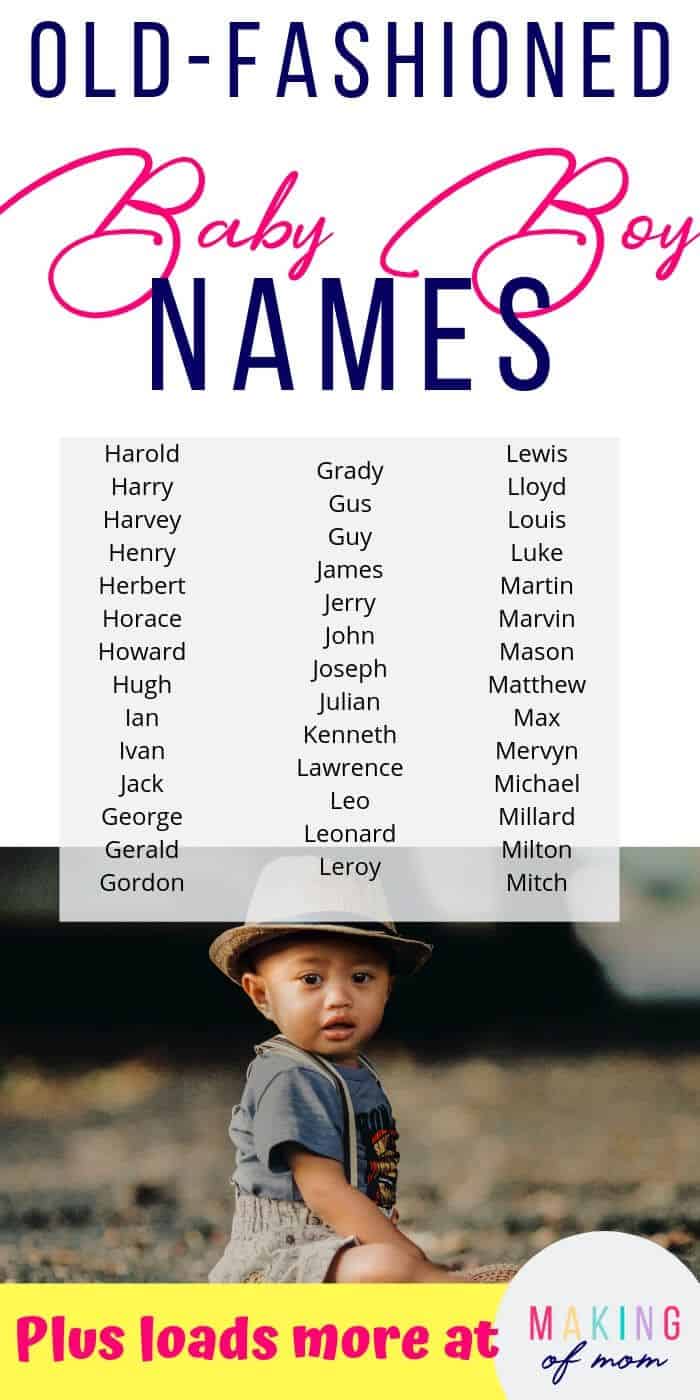Charming Old English Male Names and Their Timeless Appeal
Welcoming a new little boy into your family? Choosing a name can be as delightful as it is daunting. With so many options from all corners of the world, why not consider the timeless charm of Old English male names? These names aren’t just letters strung together; they’re steeped in history, character, and stories of yore.
In this comprehensive guide, we’ll dive into the world of Old English names, exploring their origins, meanings, and the legendary figures that bore them. Whether you’re looking for a name that exudes strength and nobility or one with a gentle, poetic lilt, you’ll find inspiration aplenty here.
Why Choose an Old English Name for Your Son?
Old English names often have rich meanings and connotations, be they derived from elements of nature, qualities like strength and bravery, or the trades and roles that shaped Medieval society. Opting for an Old English name can be a way to honor your heritage or simply a nod to the bygone eras that have shaped modern culture.
Moreover, many of these names have withstood the test of time, proving that good taste never goes out of fashion. From classic literature to modern-day films, Old English names continue to resonate and captivate us.
A Look Back in Time: The History Behind Old English Names
Old English, also known as Anglo-Saxon, was a language spoken in what is now England and southern Scotland between the 5th and 11th centuries. The names from this period are often rooted in ancient Germanic languages, reflecting the migration and cultural shifts that marked the early Medieval age. When looking at Old English names, you’ll find monikers borne by kings and warriors, poets and peasants, each with a unique tale to tell.
The Endurance of Old English Names Throughout the Centuries
Although the Norman Conquest of 1066 brought many changes to English society, including language, several Old English names persisted, either in their original form or adapted over time to fit new pronunciations and spellings. Some names fell out of use only to be revived in the 19th century, as the Romantic Period bred a fascination with medievalism and all things authentically ‘English.’
Today, many Old English names enjoy renewed popularity among parents seeking distinctive yet solid names with a long pedigree for their children. Names like Alfred, known for King Alfred the Great’s wisdom and fairness, or Edward, pointing to a series of English kings and saints, have stood the test of time.
Popular Old English Names and Their Significance
Let’s begin our journey through time with some popular Old English male names that have not only survived but thrived throughout the centuries:
- Alfred – Meaning “elf counsel,” this name was carried by Alfred the Great, the 9th-century king who defended England against Viking invasion and cultivated an era of learning and enlightenment.
- Edgar – Derived from “ead” meaning wealth or fortune, and “gar” meaning spear. Kings and noblemen frequently used it, denoting power and protection.
- Harold – This name comes from “here” meaning army, and “weald” meaning power or leader. It’s a name that conveys strength and leadership.
We’re just scratching the surface, though. Each of these names carries a history that could be the subject of its own epic tale. As we delve deeper into the vast array of Old English male names, you’ll find that each has its own flavor—a distinctive sound and a nuanced meaning that could perfectly complement the unique personality of your little boy.
Stay tuned as we continue to uncover the lore and legacy behind some of the most enchanting Old English male names…

Five Things Parents Should Know When Selecting Old English Male Names
Before you decide on that perfect Old English name for your son, here are five key elements to consider that will help you navigate through the historical richness and find a name that’s both meaningful and practical:
1. Delve into the Etymology
Understanding the roots and meanings of names can give them added depth and relevance. For example, the name “Beowulf” is not just tied to the epic poem; its elements mean “bee” and “wolf”, which could symbolise a hard-working warrior. Researching etymology can uncover fascinating stories and ensure a name resonates with your family values.
2. Consider Pronunciation and Spelling
As time has passed, the pronunciation and spelling of Old English names may have evolved. Think about whether a traditional spelling or a more modern variant would best suit your needs. A name like “Aethelred” might be unique, but it could be simplified to “Ethelred” for ease.
3. Reflect on Cultural and Historical Significance
Some Old English names carry significant historical weight. Names such as “William” have royal connotations and a storied past. Choose a name with a history that you want to celebrate and pass on to your son.
4. Gauge Contemporary Acceptance
Think about how an Old English name would fit into modern life. While uniqueness is desirable, it is also important to consider the balance between distinctive character and everyday practicality. A name like “Leofric” might stand out, but also think about how it might be received in a contemporary setting.
5. Check for Modern Equivalents
Old English names often have modern counterparts that are widely accepted. For instance, “Robert” has been used for centuries and is a version of the Old English “Hrodebert”. Sometimes, opting for a modern equivalent can honor the past while ensuring your child feels connected to the present.
Choosing the right Old English male name is without doubt a special journey through history and identity. As you consider these factors, remember that the perfect name is one that captures the essence of your son’s potential legacy—a treasure that he will carry throughout his life.
More Enchanting Old English Male Names to Inspire Your Choice
Delving further into Old English treasures, here are additional names that exude the natural charm and strong heritage that might be exactly what you’re looking for:
- Cedric – This dignified name means “kindly and loved”. It was popularized by Sir Walter Scott’s novel “Ivanhoe”.
- Theodore – Rooted in the name “Þeod?r”, Theodore offers a reverent nod to God’s gift, blending ancient origins with continued modern-day appeal.
- Godwin – Meaning “good friend”, it’s a name that suggests trustworthiness and loyalty, virtues any parent would be proud to instill in their son.
Exploring Old English male names uncovers a wealth of possibilities, each with its own distinct sound and story. The key is to find that perfect balance between honoring history and embracing the promise of the future. Whichever ancient gem you choose, it will surely be a beacon of heritage for your son to carry proudly through life.
Embrace the adventure of selecting an Old English male name, and may it be as joyful and rewarding as the life you envision for your little one. Keep in mind the timeless nature of a name, for it becomes part of a story that spans generations, weaving together past, present, and future.
Happy naming, dear parents! May your quest for the perfect Old English male name be a memorable chapter in your family’s story.
See more great Things to Do with Kids in New Zealand here. For more information see here
Disclaimer
The articles available via our website provide general information only and we strongly urge readers to exercise caution and conduct their own thorough research and fact-checking. The information presented should not be taken as absolute truth, and, to the maximum extent permitted by law, we will not be held liable for any inaccuracies or errors in the content. It is essential for individuals to independently verify and validate the information before making any decisions or taking any actions based on the articles.




